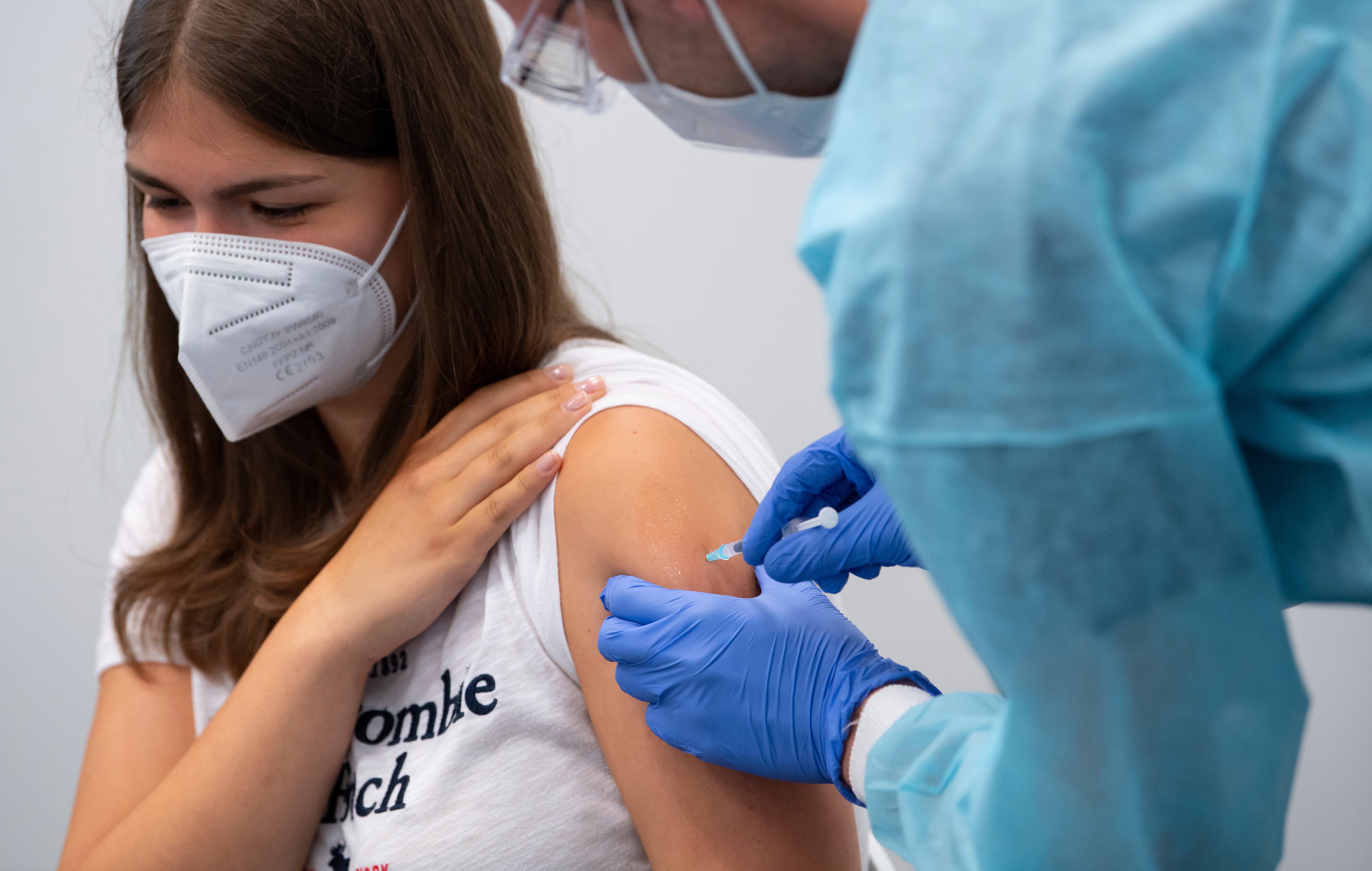Germany seeks to know more than just COVID-19 case numbers
German officials say a broader focus is needed to fully understand the impact the pandemic is having on the health system

Your support helps us to tell the story
From reproductive rights to climate change to Big Tech, The Independent is on the ground when the story is developing. Whether it's investigating the financials of Elon Musk's pro-Trump PAC or producing our latest documentary, 'The A Word', which shines a light on the American women fighting for reproductive rights, we know how important it is to parse out the facts from the messaging.
At such a critical moment in US history, we need reporters on the ground. Your donation allows us to keep sending journalists to speak to both sides of the story.
The Independent is trusted by Americans across the entire political spectrum. And unlike many other quality news outlets, we choose not to lock Americans out of our reporting and analysis with paywalls. We believe quality journalism should be available to everyone, paid for by those who can afford it.
Your support makes all the difference.With coronavirus cases edging up again, German officials said Monday that a broader focus is needed to fully understand the impact the pandemic is having on the country's health care system.
For much of the past year the incidence rate — how many COVID-19 cases are confirmed per 100,000 people each week — has been key to the government's decisions over what restrictive measures to impose.
The relevance of that figure is increasingly being called into question by those who argue that a sharp rise in new cases — already seen in other European countries such as Britain and the Netherlands — doesn't necessarily mean many more seriously ill patients.
“Because the at-risk groups are vaccinated, a high incidence doesn't automatically mean an equally high burden on intensive care beds,” Health Minister Jens Spahn said on Twitter. “The incidence is increasingly losing significance, we now need more detailed information on the situation in clinics.”
His ministry said as of Tuesday, hospitals will need to transmit more data on their COVID-19 patients, including names, the type of treatment and their vaccination status.
The government says 58.5% of the population have received at least one dose of vaccine, and 42.6 % are fully vaccinated. The number of shots administered daily has dipped slightly in recent days, raising concerns that ‘vaccine lethargy’ or even outright refusal to get vaccinated could hamper efforts to achieve herd immunity.
Germany’s disease control agency said last week that the country should aim to vaccinate 85% of people ages 12-59 and 90% of people over 60 to prevent the delta variant causing a strong resurgence of coronavirus cases this autumn and winter.
The Robert Koch Institute on Monday reported 324 new coronavirus cases in the past day, and two deaths, taking the toll since the start of the pandemic to 91,233.
Government spokesman Steffen Seibert said Germany was closely watching the situation in other European countries to determine the path forward.
“I know that the British authorities are doing so, the Dutch the Portuguese, the Spanish — everywhere where the incidence has risen again strongly,” he said. "And we in Germany, who are lucky to still have an incidence of slightly more than 6, will benefit from these insights.”
___
Follow all AP stories on the coronavirus pandemic at https://apnews.com/coronavirus-pandemic.